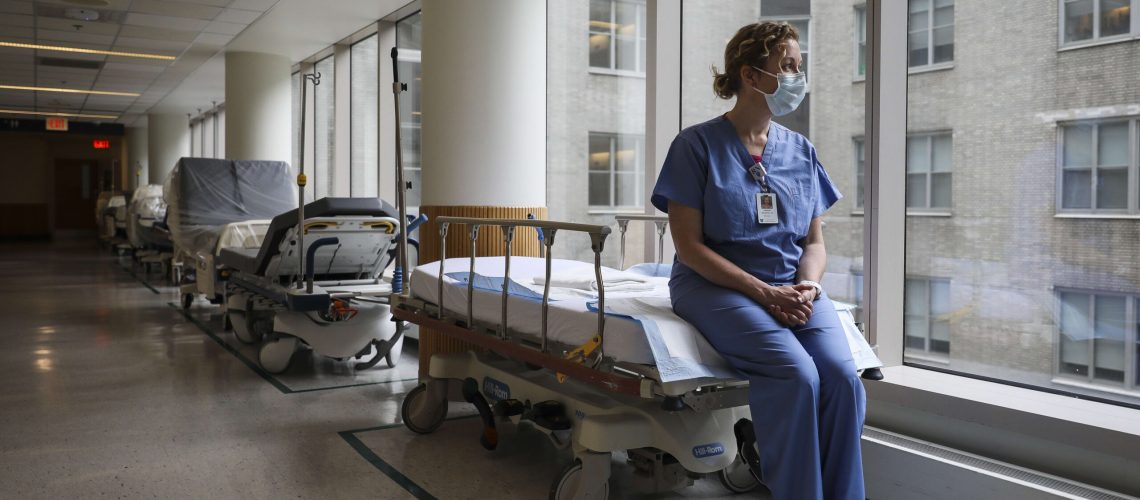The other day when we were gathering around the virtual water cooler, the topic of hospital volumes and the impact COVID-19 has had on them came up like it has a lot lately. After a little light banter, the discussion zeroed in on when hospitals will return to normal. We imagine you have thoughts on that topic, too!
The Coronavirus has had a major impact on our healthcare systems. According to a May report from Crowe, current inpatient admissions are more than 30-percent below normal levels when compared to January 2020. Emergency room visits are down 40-percent, observation services have seen a 47-percent decline, and outpatient ancillary services and surgeries are down 62- and 71-percent respectively, in the same time period.
As we continued to talk about when hospitals would return to even 75-percent of their previous caseloads, two voices started to rise above the others. These two had extremely different opinions, about as far apart on the spectrum as you can get, like just about everything else they start talking about. We’ll call them Mr. Optimist and Mr. Pessimist. (And yes, you know he’s a pessimist if he’s ok with being called “Mr. Pessimist.”)
Mr. Optimist and Mr. Pessimist disagreed on how soon hospitals would see an influx of patients for nonemergent/elective surgeries and other visits. Both had arguments to back up their sides and why they were right. When it comes to when hospitals will be back to 75-percent of their caseload, Mr. Optimist believes that will happen sometime in August or September. Mr. Pessimist believes it will happen in November-December, if not later. Here are just a few of their arguments:
Mr. Pessimist
1) The elderly utilize a large percentage of healthcare and they are the most at-risk. The elderly will be the last to seek non-life-threatening treatment since they are the “tough it out” generation.
2) Even when healthcare providers are allowed to begin performing elective procedures, the majority of the population will not have elective surgeries done until significant progress is made against COVID-19.
3) Common appointments like dental, vision and dermatology visits will continue to be postponed until there is herd immunity, the virus is under control, or testing is widely available.
4) With sports being canceled and people are generally out less, there will be fewer non-Coronavirus emergencies for hospitals to deal with. This will also lead to a decline in common illnesses like influenza.
Mr. Optimist
1) The elderly like to see their physician more than any other age group. Not because they’re necessarily sick, but because they want to be told they’re healthy. Those routine physician visits give them the mental confidence that they are healthy. Mr. Optimist’s mom wants to get this confidence back and he is sure others do to.
2) Pain is pain and people that have tried to hold off on surgery may not be able to do that much longer. They’ll want to reschedule as soon as possible. Plus, employers may want their furloughed employees to take care of these surgeries before coming back to work when things open up.
3) For many people, staying on top of their overall health is important. That includes dental, vision and/or things like dermatology. As soon as they can, they’ll be back to see their doctors because they believe in finding problems before they start.
4) While there may not be sports and travel causing injuries, staying at home can be just as dangerous. Cooking, honey-do lists and even trying to make a funny TikTok can cause plenty of problems!
Both Mr. Optimist and Mr. Pessimist have their arguments, but what do you think? Join our water cooler discussion and let us know in the poll below when you believe we will see hospital volumes returning to at least a 75-percent case load and why.
Ridiculously Nice Legal Disclaimer
The content provided in this communication (“Content”) is presented for educational and general reference purposes only. Americollect, Inc and/or AmeriEBO LLC either directly or indirectly through speakers, independent contractors, or employees (collectively referred to as “Americollect”) is providing this Content as a courtesy to be used for informational purposes only. The Contents are not intended to serve as legal or other advice. Americollect does not represent or warrant that the Content is accurate, complete, or current for any specific or particular purpose or application. This information is not intended to be a full and exhaustive explanation of the law in any area, nor should it be used to replace the advice of your own legal counsel. By using the Content in any way, whether or not authorized, the user assumes all risk and hereby releases Americollect from any liability associated with the Content.

